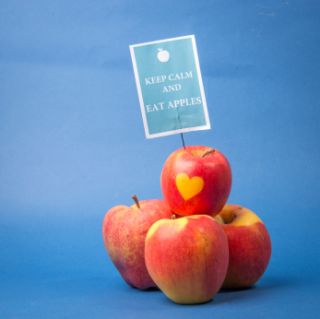Appetite
The Surprising Skill That Can Help You Eat Healthier
Want to eat more mindfully? The important skill you need
Posted October 6, 2014


In this review of studies on self-compassion and healthy behaviors, the authors suggest that being kind, compassionate and having an accepting stance toward yourself during difficult times is key to eating well. Why? Basically, people who have self-compassion are able to regulate (or adapt and respond well) to their emotions. If they have an “oops, why did I eat that” moment, they can deal with it effectively.
People who are more self-compassionate view their “oops” why-did-I-eat-that-second-piece-of-cheesecake moment less negatively (not the end of the world), give themselves a break (everyone makes mistakes) and don’t become overly self-critical which leads to feeling bad about yourself. When you are frustrated and upset, it is difficult to make healthy choices. These emotions often lead to self-defeating decisions. Giving yourself a break helps you to bounce back and get right back on track instead of staying stuck in unhealthy and emotional eating. In other words, lose the “hard on yourself” and gain the “it okay, I’ll work through it and do better next time” stance.
I talk a lot about being resilient, self-compassionate and responding rather than reacting to emotions when you eat in my new book, EatQ. It’s not easy to have self-compassion for yourself! Your brain is wired to pick up quickly on the negative and many of people have a loud inner critic sitting squarely on their shoulder.
TRY THIS: For example, one of the five strategies I outline is the Buddy Approach. We are much more compassionate toward our friends than ourselves. When you need a little self-compassion, imagine a close friend. Pick someone specific. Now say out loud three things you would say to a friend if they had an “oops why did I eat that” moment. Notice how easily and more quickly you are able to be compassionate (ex: “one piece of cheesecake isn’t going to make that big of a difference"). Now, turn it is a matter of turning these three statements toward yourself.
For more suggestions on self-compassion and eating mindfully, see http://eatq.com/eatq-book/amazon.html (Great bonuses this week!)
Dr. Albers is a psychologist and author of six books on mindful eating. She is frequently quoted in Shape, Health, Self, Prevention and several other magazines. She has also been a guest on Dr. Oz.
*Self-Compassion, Affect, and Health Promoting Behaviors by Sirois, Kitner & Hirsch (2014, September)


